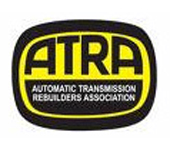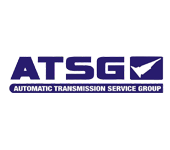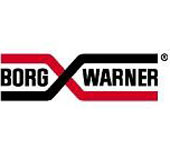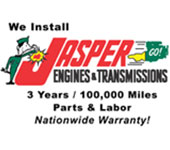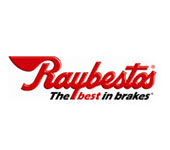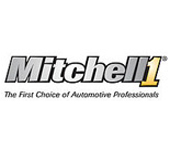817-446-7295 or 682-321-7117 | 2921 S Cooper St #101 Arlington, TX 76015
AUTONET TV
Archive for April 2024More than Pads and Rotors (Brake Caliper Replacement)Posted April 28, 2024 4:09 AMYou might be familiar with brake pads and rotors, two components of your vehicle's brakes that have to be regularly serviced. Here's another important component of your brakes: the calipers. Calipers are used in disc brakes, the type of brakes now found in most recently manufactured vehicles. A caliper is the part of the brakes that squeezes the brake pads against the discs, or rotors, which turn with your wheels. There are different kinds of calipers, but the basic principle is the same. You press down the pedal, brake fluid activates a piston or pistons that squeeze the brake pads against the disc and the friction slows down your vehicle. While modern vehicles have a warning system to let you know it's time to get your brakes checked, your brake light usually goes on when your fluid level is low or your fluid pressure is low. But you may have to look out for signals your calipers are the problem. If your vehicle pulls to one side when you brake, that could be a sign that one caliper isn't working right. If you smell a burning odor coming from a wheel after a trip, there might be too much pressure from a caliper. Grinding or squealing when you brake is another signal that it may be time to bring in your vehicle so we can check your brakes. One way to minimize brake issues is regular inspection. Have them periodically looked at when you bring in your vehicle for an oil change. The good news is brake issues are more likely to be caused by pads or rotors wearing out. Calipers last a lot longer, but even they will need replacing every so often. Westmoreland Transmissions FORT WORTH Drivers Severe Service Maintenance SchedulesPosted April 21, 2024 8:27 AMSince driving requirements and lifestyles differ among FORT WORTH drivers, your vehicle manufacturer publishes two auto maintenance schedules: the regular schedule and the severe service schedule. Which schedule should FORT WORTH drivers follow? Here are some questions to ask yourself: Let's suppose your owner's manual says the severe service oil change recommendation is 3,000 miles/5,000 kilometers and the standard recommendation is 5,000 miles/8,000 kilometers. You know that you need to change the oil somewhere between 3,000 and 5,000 miles/5,000 and 8,000 kilometers. Analyze your driving patterns and FORT WORTH weather and road conditions to determine which end of the spectrum you're closer to. Carrying heavy loads (with or without a trailer) in TX summer weather causes your engine and transmission to run at higher temperatures and with more stress. The fluids will break down more quickly. Additives that clean and prevent corrosion will be depleted sooner. Air pollution and dust cause fluids to get dirty faster. Ditto for filters. All of these things can lead to premature wear and eventual repairs. If you want some expert advice, talk with your friendly and knowledgeable Westmoreland Transmissions service advisor. We can help you restore your vehicle to good working order and help you know the best schedule to follow. Emergency! (Vehicle Emergency items)Posted April 14, 2024 12:07 PM"I never expected it could happen to me." Countless drivers have said that after they've had an emergency turn their lives upside down. So before that happens to you, let's thinking about planning ahead for an emergency with a few things you should keep in your vehicle.
Other things like basic tools, a first aid kit, a space blanket and jumper cables are also good ideas. Many service repair facilities offer these items for sale, and you can ask your service advisor for suggestions. While it's fresh in your mind, plan a shopping trip and put together your own emergency kit now. Sure, you can put it off, but you may find yourself stuck in a difficult situation, saying to yourself, "Only if…" Westmoreland Transmissions Water Everywhere (Clogged Drains)Posted April 7, 2024 12:47 PMIt's bad enough when you mistakenly leave a window open in your vehicle on a rainy day and you find your carpet soaked. But what in the world is going on when your windows are closed tight, not leaking and you STILL wind up with wet carpet? The answer could be something you might not even know your vehicle has. And the answer is? Drains. And those drains can get clogged. Yes, your vehicle has several drains with tubes or hoses attached to them that you really never see. There are some in and around the hood that channel rainwater down to the ground. There are some that take condensation from the air conditioner and allow it to flow outside. And if your vehicle has a retractable sunroof or moon roof, there are small drains at each corner that connect to tubes that go through the vehicle body down to an exit near the ground. Considering all the leaves, dirt, dust and other debris your vehicle encounters on a daily basis, it's not surprising that these drains can get blocked. Then when it rains, that water winds up going to the place of least resistance. Sometimes, that's inside the cabin where it shows up as wet carpeting. So, what's the solution? You may be tempted to see if you can clean out those drains yourself. But there are many people who have tried blowing condensed air in the drains only to find that they literally blow the tubes off of their connections inside the vehicle's body. Reattaching those can be a time-consuming, labor-intensive, expensive proposition. A trained technician has the equipment and knowledge to clear out those drains properly. To prevent clogged drains, regular maintenance is the key, so when your vehicle is in for other periodic maintenance like oil changes and tire rotations, the technician can make sure all drains are clear and flowing like they should. Westmoreland Transmissions | ||
SearchArchiveApril 2018 (16)May 2018 (5) June 2018 (4) July 2018 (5) August 2018 (4) September 2018 (5) October 2018 (4) November 2018 (4) December 2018 (5) January 2019 (5) February 2019 (4) March 2019 (5) April 2019 (4) May 2019 (4) June 2019 (5) July 2019 (4) August 2019 (4) September 2019 (5) October 2019 (4) November 2019 (4) December 2019 (5) January 2020 (5) February 2020 (4) March 2020 (5) April 2020 (4) May 2020 (5) June 2020 (4) July 2020 (4) August 2020 (5) September 2020 (4) October 2020 (4) November 2020 (5) December 2020 (4) January 2021 (6) February 2021 (4) March 2021 (4) April 2021 (4) May 2021 (5) June 2021 (4) July 2021 (4) August 2021 (5) September 2021 (4) October 2021 (5) November 2021 (4) December 2021 (4) January 2022 (6) February 2022 (4) March 2022 (4) April 2022 (4) May 2022 (5) June 2022 (4) July 2022 (5) August 2022 (4) September 2022 (4) October 2022 (5) November 2022 (4) December 2022 (4) January 2023 (5) February 2023 (4) March 2023 (4) April 2023 (5) May 2023 (4) June 2023 (4) July 2023 (5) August 2023 (4) September 2023 (4) October 2023 (5) November 2023 (4) December 2023 (4) January 2024 (5) February 2024 (4) March 2024 (5) April 2024 (4) | CategoriesTires and Wheels (32)Fluids (8)Cooling System (11)What Customers Should Know (33)Serpentine Belt (4)Monitoring System (3)Safety (4)Drive Train (6)Dashboard (1)Engine Air Filter (2)Maintenance (37)Windshield Wipers (7)Automotive News (3)Transmission (7)Fuel System (27)Battery (12)Service Standards (6)Steering (7)Exhaust (6)Differential Service (2)Warranty (1)Diagnostics (5)Shocks & Struts (8)Fuel Economy (4)Inspection (6)Keys to a long lasting vehicle (4)Parts (6)Check Engine Light (3)Air Conditioning (9)Cabin Air Filter (6)Auto Safety (4)Alternator (2)Fuel Saving Tip: Slow Down (1)Brakes (11)Service Intervals (6)Winter Prep (3)Older Vehicles (3)Alignment (8)Timing Belt (3)Oil Change (4)Headlamps (3)Diesel Maintenance (1)Emergency Items (1)Winter Tires (1)Suspension (3)Customer Detective Work (1)Tires (5)Tire Rotation and Balancing (1)Transfer Case Service (1)PCV Valve (1) | |
Testimonials
JVibez, 04/12/2024
They were very welcoming and gave me no problems at all. I would refer them to anyone.






